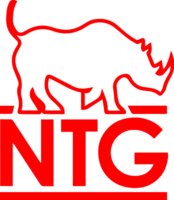Supply chain veterans Reid Klosowsky and Bill Maroney, in partnership with NT Logistics, Inc., have co-founded and launched Freight Think, an advisory group dedicated to helping business leaders drive profitability by optimizing transportation strategy to increase efficiency and reduce costs.
“I’m excited to partner with Reid and Bill as we launch this venture,” said Lynn Gravley, president and CEO of NT Logistics. “With a combined 40-plus year history of supply chain leadership, they have managed billions of dollars in annual spend, optimizing both performance and cost by bridging the gaps that all too often exist between the ‘product’ people and the ‘logistics’ people. Plus, they are keenly aware of just how time-strapped teams are today, so they’ve built services to quickly get in and get out, so shippers can act fast.”
Klosowsky and Maroney use a four-part advisory approach to negotiate, validate, analyze, and optimize freight expenditures. The solution is built for speed with an average elapsed timeline of two weeks to present findings.
Providing valuable insights to help businesses of any size meet their goals, Freight Think offers a variety of services and solutions including:
- Carrier contract review and analysis,
- Freight bill auditing,
- Packaging and network design,
- Routing compliance and optimization,
- Carbon reduction guidance,
- Performance measurement,
- End-to-end visibility, and
- Speed and service strategies.
“Shippers today understand that it’s time to take a more surgical approach to improve profitability,” Klosowsky said. “We’ve got to look at profitability at the product versus the company or department level. By understanding how product and freight work together, companies can be smarter and gain efficiency. All too often we find simple solutions that drive significant value.”
The company offers a quick, five-question online quiz and complimentary assessment to help shippers identify potentials savings opportunities.
Freight Think can help businesses develop, track, and report on their environmental goals as well. The assessments look at ways to lessen fuel consumption, decrease emissions, and reduce packaging and waste, all key metrics for companies’ ESG goals.
Maroney adds, “Being more efficient, whether that means minimizing redundant moves, shortening length of haul, or removing empty space from cartons, containers, or trailers, is not just ‘the right thing to do,’ it’s good business.”


